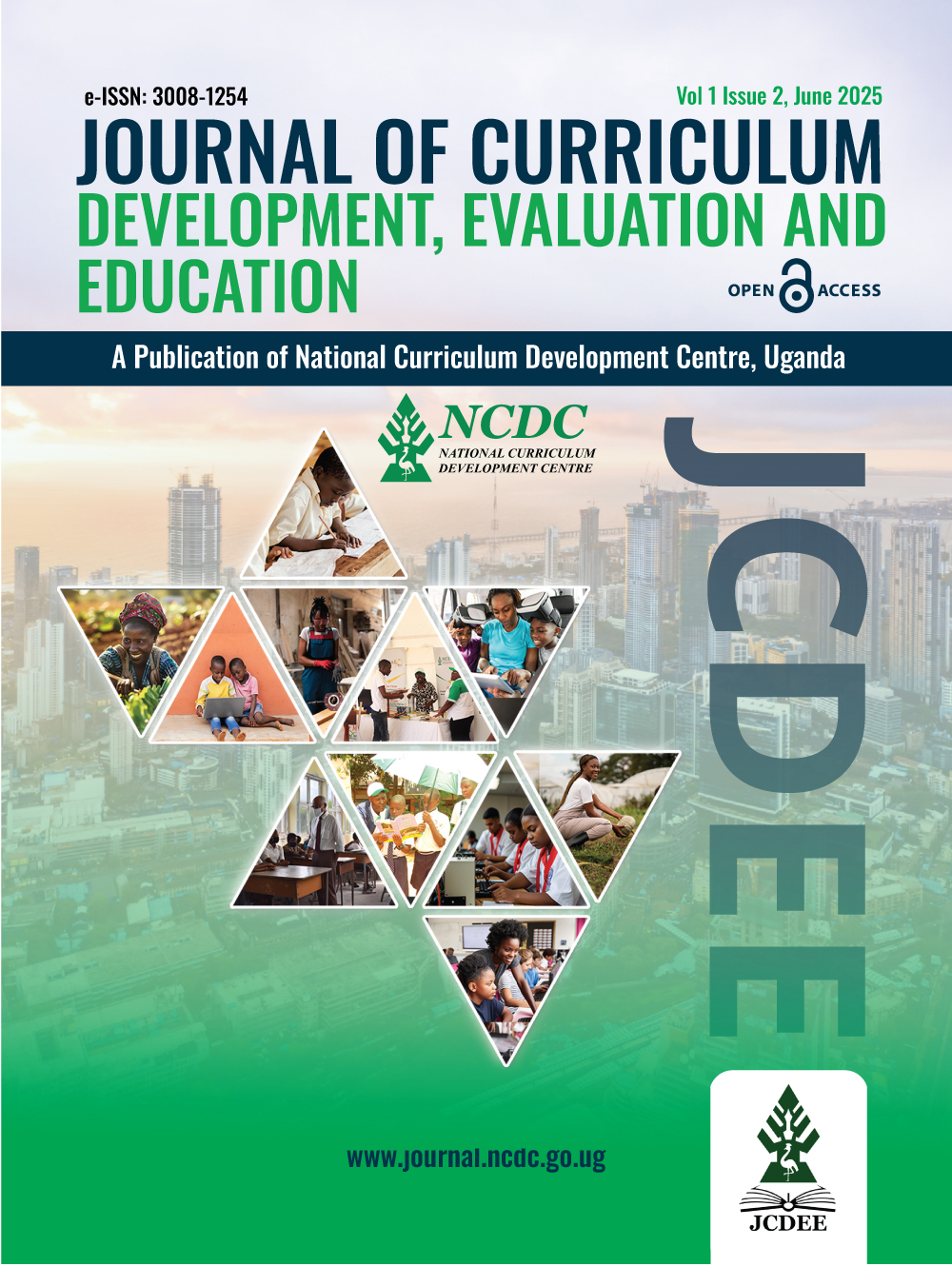From a Knowledge-based to a Competence-based Curriculum: Insights into Opportunities and Threats to Implementation in Uganda
DOI:
https://doi.org/10.64948/JCDEE.v1.i2.2025.96Keywords:
Competence-based curriculum, Teacher experiences and perspectives, opportunities and threats, UgandaAbstract
Uganda, a country in East Africa, first implemented its competency-based curriculum in February 2020. This curriculum, referred to as the Lower Secondary Curriculum (LSC), replaces the knowledge-based, content-centred, and examination-oriented curriculum, designed in the 1970s mainly to produce human resource for white-collar jobs. This exploratory three-case qualitative study used semi-structured interviews with 21 teachers, eliciting their experiences in the implementation of the LSC. It illuminated potential gains/opportunities such as teacher collaboration, active learning, generic skills development, and enhancement of ICT competences. However, like previous studies on curriculum reform in developing countries, the full benefits of the LSC remain tenuous due to systemic problems. Indeed, the misalignment to the competence-based approaches, reflected through the tendency to revert to traditional teacher-centred methods, was largely attributed to inadequacies in resourcing, limited ICT competences, poor infrastructure, and shortcomings in the training, all of which disproportionately affected the poorly resourced schools. Addressing these challenges requires targeted and differentiated supported systems, including resource allocation, ongoing in-service teacher training, and institutional support for ICT integration. This is critical for plugging the deepening educational inequalities.


